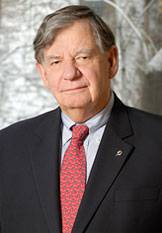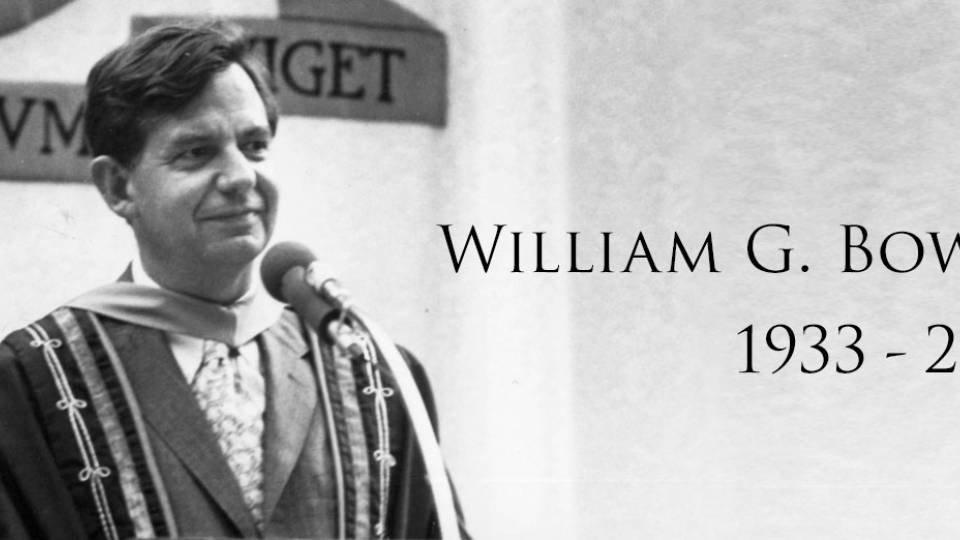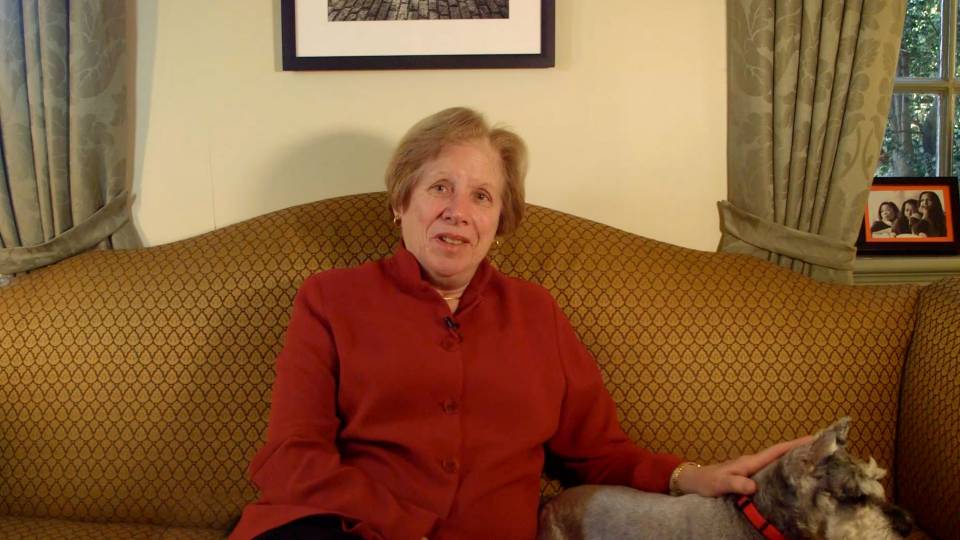In a new book on leadership, former Princeton University and Andrew W. Mellon Foundation President William G. Bowen offers this key piece of advice: "Plan carefully, then execute rapidly."
It may sound simple, but it's not always easy to follow, according to Bowen, who has written "Lessons Learned: Reflections of a University President" (Princeton University Press, 2011). The book offers insights into the challenges that almost every college or university president faces -- from cultivating relationships with trustees and recruiting administrative team members to setting academic priorities and fundraising.
"The most important lesson is to listen carefully, find the facts and then decide," Bowen said in a recent interview. "Formulate the question correctly. Assemble the evidence you need to make an informed choice, and then make the choice. But do those things in that order."
"There are times when it may not be obvious what to do, but you need to do something," Bowen added. "You can see if it works. If it doesn't, you can do something else. But just equivocating is not terribly helpful."
Bowen wrote "Lessons Learned" at the behest of colleagues and friends who presumed he must have some valuable thoughts on the topic of leading a university after serving as president of Princeton from 1972 to 1988 and as president of the Mellon Foundation (where he worked with presidents and provosts of top institutions) from 1988 to 2006.
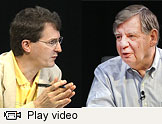
Watch a short video produced from the five interviews University Archivist Daniel Linke conducted with Bowen in 2009 on his years at Princeton for the oral history project sponsored by Princeton's Office of the Vice President and Secretary. Transcripts of the interviews are available on the University Archives website. Videos of the interviews may be posted at a later date. Transcripts and videos of interviews with President Emeritus Robert F. Goheen for the same project also are on the site.
"I'd been pressured for a long time to write something like this, and I never thought that I was quite ready to do it," Bowen said. "But finally I decided that I should answer a recurring question, namely, 'What, if anything, did I learn in all those years I was in and around presidents' offices. This book is not a memoir, it's not a history, it's what its title says: 'Lessons Learned.'"
Bowen got a head start reviewing material for the 168-page book in 2009 when he was invited to participate in an independent oral history project sponsored by Princeton's Office of the Vice President and Secretary. Bowen conducted five video interviews about his years at Princeton with University Archivist Daniel Linke (see link at left).
Bowen, a 1955 graduate of Denison University, also has served on that institution's board of trustees. He earned a Ph.D. in economics from Princeton in 1958 and joined the faculty the same year. In 1967, he was appointed provost, serving as deputy to President Robert F. Goheen. He assisted Goheen in planning and overseeing the move to coeducation in 1969, as well as promoting increased diversity, expanding financial aid and working to form the Priorities Committee, a group of faculty, students and staff that serves as a mechanism for recommending fiscal and programmatic priorities. He was 38 years old when he was installed as Princeton's president.
The new book, he said, is intended for those who are or might become presidents or senior academic officers at colleges or universities, for those who serve on boards of trustees and for those who are interested in the field of higher education. Chapters cover topics such as strategic decisions, building the faculty, admissions and financial aid, and life in a president's office -- and when to leave.
"I deliberately focus on things that were not always right, that did not turn out perfectly, because -- at least in my case -- I felt I learned more from some mistakes than from some situations in which everything went fine," Bowen said.
He points to Princeton's move to coeducation as an example of when "plan carefully, then execute rapidly" worked. Bowen said leaders should be careful not to assume they know more than they do. He tells how Goheen established both a campus committee and a trustee committee with carefully chosen chairs, and describes the investigation and deliberations that followed.
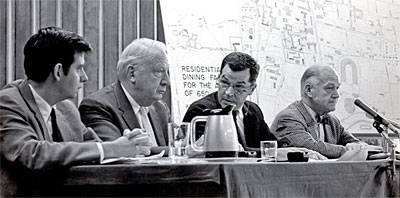
Bowen describes the investigation and deliberations surrounding the issue of coeducation, and then the rapid implementation of a plan once the decision was made in 1969. From left, Bowen is shown here when he was provost at a logistics meeting on admitting women with Trustee James Oates Jr., President Robert F. Goheen and Financial Vice President and Treasurer Ricardo Mestres. (Photo courtesy of University Archives)
"We would never have gotten the support for the decision to go coeducation if it had not been for the extraordinary amount of work that had gone into modeling the process and looking at it from every possible direction," Bowen said. "Once we knew what we wanted to do, we moved like lightning -- we worked around the clock to just get it done."
Moving rapidly helped coeducation gain wider acceptance more quickly, he writes. "First, it avoided the problems that would otherwise have been caused by festering debate, especially among alumni, over whether the decision was really a wise one, whether it could be reversed and so on. Second, a number of us believed that it would be the women students themselves who would really sell coeducation to disgruntled alumni, and the sooner they were on campus, the sooner they could make their own case for being there."
While some from the corporate sector, for instance, may criticize universities for not moving quickly enough, Bowen said the higher education model of consulting widely and then making decisions could be useful in today's era of management by shared power and responsibility.
"Universities are less hierarchical than most organizations, so to achieve goals, it's necessary to build consensus, it's necessary to give reasons for what you're doing, it's necessary to be persuasive," said Bowen. "It isn't a matter of just commanding someone to do something."
The hard lesson of not 'executing rapidly'
In contrast to the successful implementation of coeducation, Bowen cites the example of the University making a major investment in the life sciences, specifically molecular biology, as an effort that was not immediately an achievement.
In the early 1970s, leaders determined that the University needed to build strength in this emerging field. But rather than moving rapidly, Princeton approved modest numbers of new faculty appointments, primarily at the junior level, and made slight improvements in facilities. The process stretched out over a decade.
"We took much, much too long," Bowen said. "I made the mistake of thinking it was possible to do such a profound thing incrementally. It wasn't. We first had to make a sufficiently big bet that it had a chance to succeed."
Finally, the University in 1984 hired faculty members Arnold Levine and Thomas Shenk to lead the life sciences expansion, and in 1986 built Lewis Thomas Laboratory. Levine and Shenk recruited a number of stellar faculty members, including Shirley M. Tilghman, who is now the University's president.
"Two obvious lessons are that excellent people attract excellent people, and that scale (and momentum) matter greatly," Bowen writes.
Attracting the right people to the right jobs is one of the topics Bowen tackles. Most leaders, he said, will make a wrong hiring decision along the way. In the area of human resources, his advice is to acknowledge mistakes sooner and fix problems faster.
"People often think that it's going to be harder to correct a hiring mistake than, in fact, it is," he said. "But I found several times that people who weren't a good fit for a particular position were relieved when we talked candidly about it. I made clear that this was not an exercise in finger-pointing. Let's not debate how we got where we are. Let's just agree that where we are is not a very good place to be. Let's find a graceful way out for everybody. People often appreciated that."
But to avoid getting into those situations, he suggests being cautious about convincing hesitant candidates.
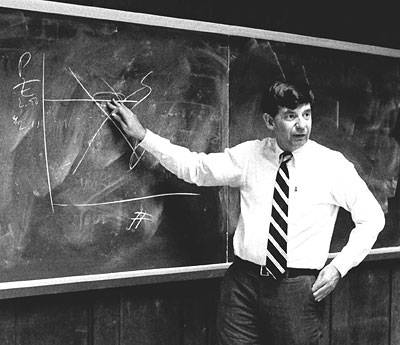
Bowen was a professor in Princeton's Department of Economics before becoming provost and then president. He believes that serving as a faculty member is good training for those who aspire to be presidents. "You have to analyze issues and understand them, and you have to be able to communicate," he said. "Teaching is a great way to hone whatever skills one has in that area. A lot of being president is about teaching." (Photo courtesy of University Archives)
"It's important to not over-persuade," he said. "I'm fairly good at persuading people to do what I want them to do. And I learned that I need to be careful about that because people know more about themselves than I will ever know about them. If people were genuinely reluctant, I learned to be very careful not to, in effect, force them to go against their own best judgment. When I was at the Mellon Foundation, I became so convinced of this mantra that I had T-shirts made up that said, 'No reluctant dragons.'"
Bowen believes that serving as a faculty member and participating in university governance are good training for those who aspire to be presidents.
"Teaching and doing research are very good preparation for this kind of job because you have to analyze issues and understand them, and you have to be able to communicate," he said. "Teaching is a great way to hone whatever skills one has in that area. A lot of being president is about teaching."
Bowen also stressed the importance of mentors. "I had in Bob Goheen a superb teacher. I learned so much from that amazing man," he said.
Building an inclusive campus among continuing challenges
Bowen, who is the author or co-author of some 20 books, including "The Shape of the River: Long-Term Consequences of Considering Race in College and University Admissions" (1998) and "Equity and Excellence in American Higher Education" (2005), writes about how important it is for presidents to seek diversity in building faculty and student bodies.
"You have to make people feel comfortable in their surroundings," he said. "One of the most thoughtful comments an undergraduate ever made was when Jerome Davis, a co-founder of the Association of Black Princeton Alumni, said that the goal is very simple: It's to make people feel 'unselfconsciously included.' That's a wonderful phrase. It was the same with other groups of people, whether it was the early women students and faculty members or Jewish students. Helping them feel a part of the place was enormously important. It's not a matter of just having people here. They have to feel that you want them here -- that they have something important to contribute."
Bowen said he is not surprised that after 40 years, issues surrounding coeducation are still being examined. In 2009, Tilghman appointed a Steering Committee on Undergraduate Women's Leadership to develop a better understanding of how undergraduate students perceive and take advantage of opportunities to assert leadership inside and outside the classroom at Princeton. Its report will be released this spring.
"Issues of gender, as with issues of race, are always with us," Bowen said. "There's always something new, and there's always a new question to ponder."
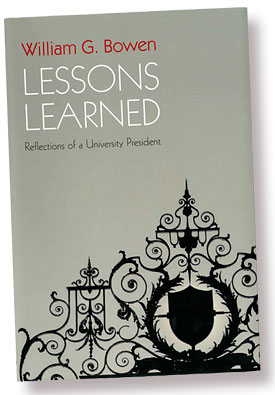
Bowen said he has received many favorable comments on the book, published by Princeton University Press.
Looking to the future, Bowen said one of higher education's biggest leadership challenges will be in the area of technological advances.
"One of the big opportunities that will need to be managed very carefully is to take advantage of what technology offers us," he said. "In recent years, there has been considerable progress made devising ways of learning that really build on cognitive science. Taking full advantage of what those technologies can offer us is going to be important for all of higher education, certainly for the public sector."
He mentioned a project in which he is involved to test the educational effectiveness of an interactive online learning approach that embeds assessment into every activity to constantly evaluate and improve the instruction.
Bowen, who was presented with the 2010 Clark Kerr Award by the University of California-Berkeley for "distinguished leadership in higher education," said he has had very positive feedback since the book was published. "I've been gratified by the number of people who have said that they've found it interesting, instructive, worthwhile, fun to read," he said. "That's very nice -- I hope it's true!"
